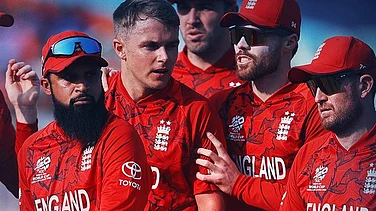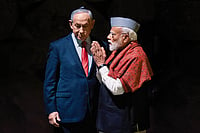Is the Commonwealth as a whole, and not just the Games, an anachronism in today’s day and age? The sun has long set on the British empire and the UK is no longer the power that it was. Yet London continues to perpetuate its colonial legacy, much of which is tarred by the exploitation of natives, the plunder of national wealth from colonies and a thriving slave trade that enriched the exchequer.
Last week, the Australian state of Victoria decided to withdraw as hosts of the 2026 Commonwealth Games (CWG) on the grounds that the cost was exorbitant and that the roughly $7 billion (Australian) could be better spent on public utilities. This is certainly an indication of where the Commonwealth Games stand vis- a-vis the other international sporting events and raises the larger question about the relevance of the very concept of the Commonwealth.
As a rule, there is fierce competition among countries to hold prestigious sporting events, whether it is the Olympic Games, the Football World Cup or major racing events. The money spent on the infrastructure brings back huge returns for the host nation and is a matter of national pride. The fact that the state of Victoria had second thoughts about holding the CWG is an indication that much of the prestige and accompanying cash flow is no longer relevant to the Commonwealth Games.
The History Of The Games
The idea of the Games was proposed by the Australian-born John Astley Cooper in 1891, when the British empire was in its full glory. Cooper wanted athletes from across Britain’s far-flung colonies to gather together to demonstrate their athletic prowess and celebrate their togetherness and loyalty to the empire.
Cooper lobbied for this, wrote in several periodicals and produced pamphlets to promote his vision. He believed this would showcase the British empire’s reach and also help it develop goodwill, besides forging friendly ties between the colonies. While nothing much happened right away, the idea was sown.
It was not until 1911 that a version of the Games were held in London to celebrate the coronation of King George V. The Games were part of what was called the ‘Festival of the Empire’. It was held at Crystal Palace in London. Teams from Australia, New Zealand, South Africa and the UK competed in boxing, athletics, swimming and wrestling. The Games were called the Inter-Empire Championship. Canada won the maximum number of medals and were presented with a silver cup.
In 1930 the British Empire Games were held in Hamilton in Ontario, Canada. Soon after, the word ‘Empire’ was dropped. The event was now known as the Commonwealth Games.
It’s A Different World Now
That brings us back to the question. Is the Commonwealth relevant? Not so much, it would seem.
“The Commonwealth has become less and less relevant for quite some time as the age of globalization reduced its importance. The historical memories of having been a part of the British Empire have receded into oblivion,’’ says Ambassador
KP Fabian. ``At present there is de-globalisation, where countries take care of their economic needs by forming associations or through bilateral engagement. As Developing countries in the Global South face serious problems with the reluctance of the rich North to compensate for the damage they caused to the environment, the growing debt burden, the Covid-19 disruptions and the impact of the Ukraine war on the economy and a general reluctance of the rich North to address the problems of the South, in all of this the Commonwealth has been by and large inactive.’’
So why is India there?
“Once a country is in, there is no point walking out,’’ Fabian said with a laugh.
The Commonwealth was founded in 1949 and has a membership of 56 countries, the majority of them former British colonies stretching across Asia, Africa, and the Caribbean. India, Sri Lanka and Pakistan choose to be a member of the Commonwealth though they are independent Republics and do not acknowledge British suzerainty. In the post-war period, when former colonies became independent, the Commonwealth served as a facilitator and forum for decolonization. As a result, many of the former colonies willingly joined the Commonwealth. Arnold Smith, the first Secretary-General of the Commonwealth, described this decision as “at once pragmatic and forward-looking.’’
Just 15 countries, including Australia and Canada, referred to as the Commonwealth realms accept the British monarch as their king.
What the Commonwealth stands for remains somewhat fuzzy. The UK’s Royal family, especially the late Queen Elizabeth, was a great believer in the
Commonwealth and never failed to mention it in her major speeches. Beyond that however, the Commonwealth is not a major foreign policy instrument even for the British government. It is there to promote goodwill and continues to limp on, though there is much activity around the time of the summit which is held once in two years. Like several other international groupings, the Commonwealth too promotes democracy, human rights, good governance, the rule of law, individual liberty, egalitarianism, free trade, multilateralism and world peace.
Philip Murphy, director of the Institute for Commonwealth Studies, put it rather well when he said in a comment for the ‘Khaleej Times’: “For Britain’s administrative elite, the Commonwealth is a bit like a grandfather clock that has been in the family for generations. It hasn’t told the right time for decades, but no one has the heart to take such a treasured heirloom to the tip.”
However, in a changing world, this grandfather clock may soon stop working, unless the grouping becomes more than a moribund organization.



























